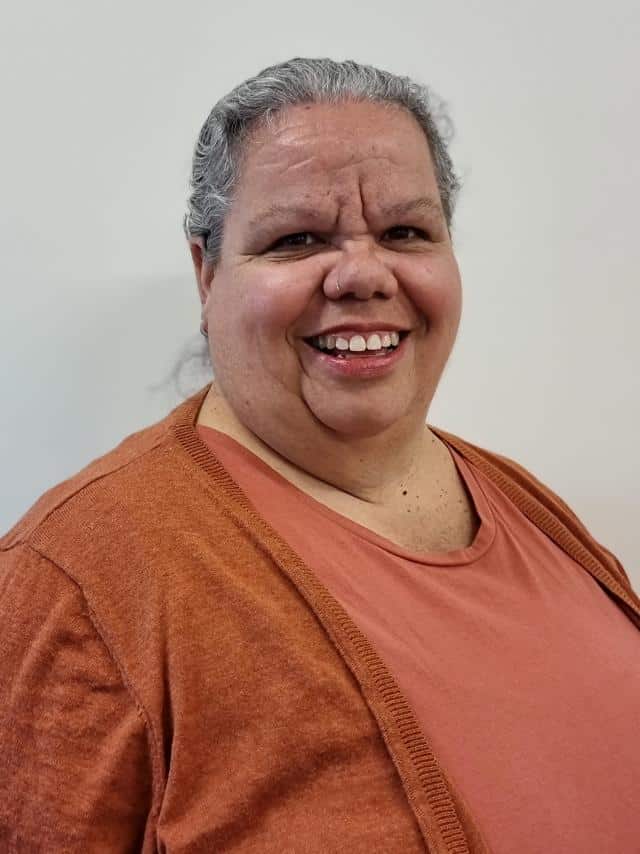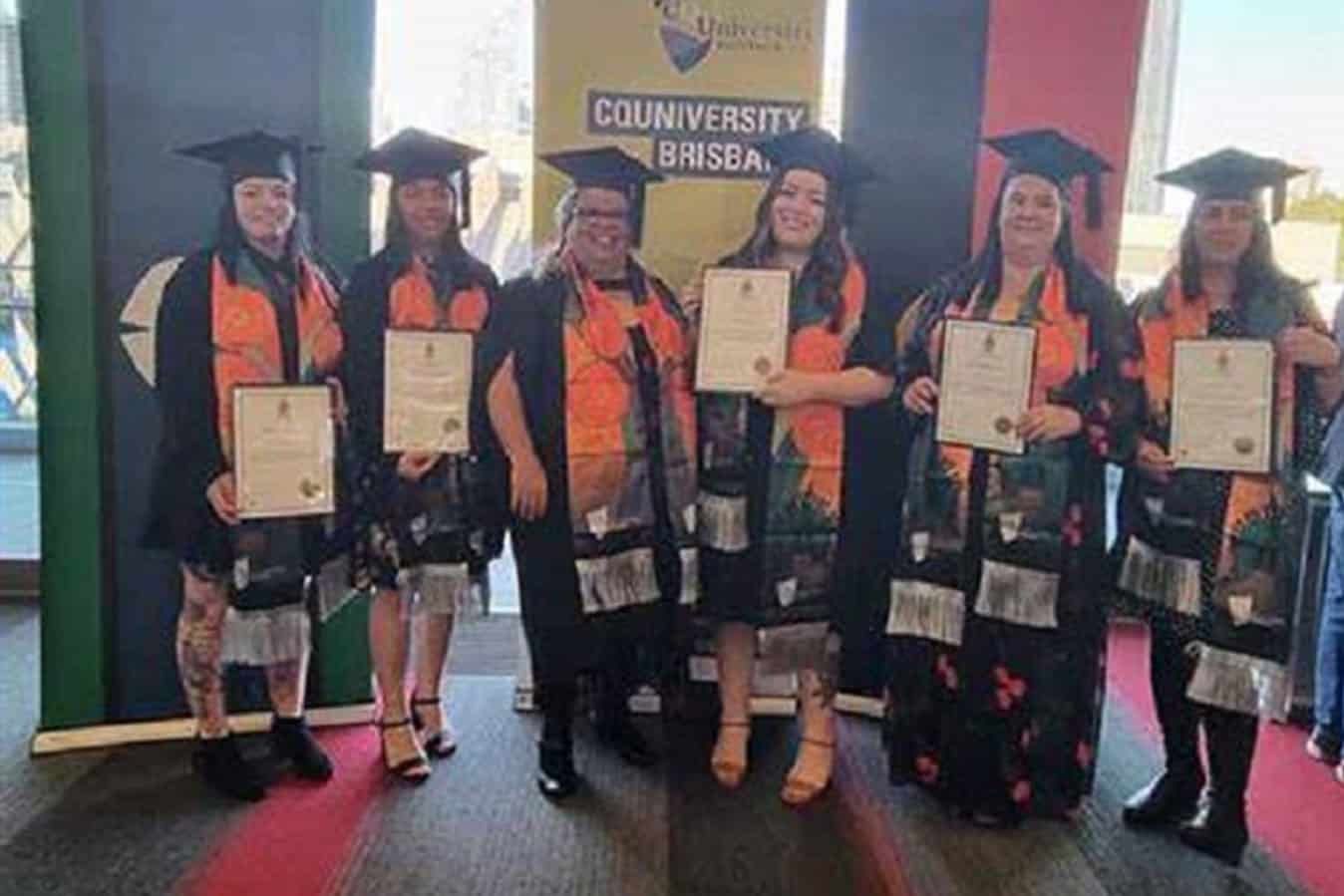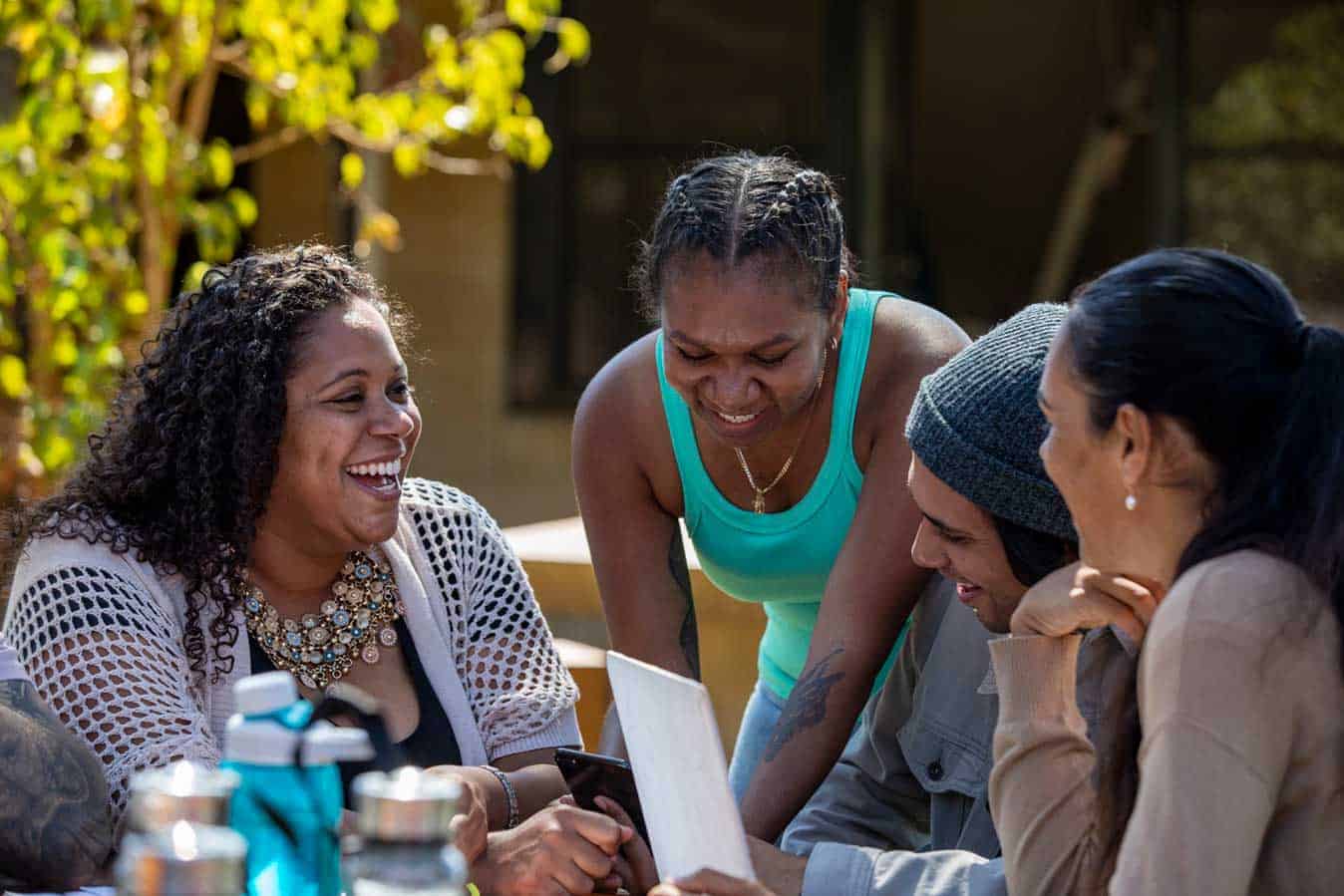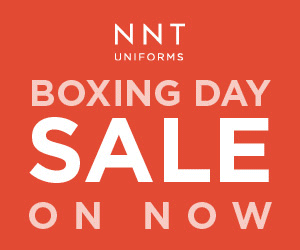Proud Yaeg/Bundjalung woman and registered nurse Recheal Daley is on a mission of advocacy to help close the gap for Indigenous health.
“I hope for all First Nations people to know that they will receive equal healthcare, free from judgement and to feel truly safe,” she said.
Ms Daley is a teacher for Indigenous Primary Health at Central Queensland University (CQU) which provides Indigenous students with the clinical scope of practice to embark on a career in the Indigenous health sector.
“There are so many exciting pathways students can take in bridging the health services gap. For example in becoming a diabetic nurse educator, specialising in women’s and men’s health, midwifery and so much more.”

Ms Daley leads CQU’s Certificate IV in Aboriginal and/or Torres Strait Islander Primary Health Care Practice which provides invaluable scope for Indigenous students to deliver key facets of what is needed at the heart of healthcare for First Nations people.
“Connectedness to community, trust, becoming role models, showing respect individually and in the community, providing a safe place for community to talk, yarn and discuss issues – these are examples of some of the ways real change is being brought to the health sector.”
The course sets students up to work in the vast primary healthcare space alongside other agencies, schools, police and other organisations to work together as a whole to help combat issues targeted and specific for that community.
Students who complete the course become leaders in their community and are equipped to pave the way for positive, holistic health.
As an RN, Ms Daley has seen the rewards of patients in her care begin to open up and trust, leading them to become autonomous in their own care and being empowered to make healthy changes within their own lives as well as for their families.
“Its holistic care – getting to know the person, their family, what’s happening in the micro and macro in community and giving them a voice. We navigate the clinical, provide options and then give them the power to make those decisions – it’s not what you think they should do.
“I have to be realistic about what they can and will do. It’s about making it real. They own their own health journey. They tell me what they want and I tell them if I can do it.
“It’s important to sort out what they need most – whether that be housing, food, employment and then we talk about the health stuff. Once you’ve sorted that out come back to me in the clinic and we’ll do your blood pressure. Listening and patience are key.”
Ms Daley’s own background is a descendent of the Stolen Generations, northern coastal NSW. Being Aboriginal can carry so much weight, pain, past injustice and trauma and the course requires students to do much self-reflection in order to find out where they sit in their community, what drives them, the barriers, and how to move through them, she said.
“I want First Nations people to feel that, whilst in my care and for the organisation that I work for, that I will protect them from these and knowing that they will receive the best care and knowing they are safe.”
While we still have a long way to go, Aboriginal Health Workers and Practitioners (AHWs and AHPs) are slowly being recognised for the work they do, and the impact they have on community health outcomes.
“Aboriginal health workers and practitioners are still not being utilised to their full potential. They can do so much more and often can have more impact than a registered nurse. AHPs need to be supported. There are different expectations placed on Aboriginal people. If an Elder is asking me to do something that takes priority,” Ms Daley said.
The power of the AHP working in an Aboriginal Medical Service is that they hold more weight with community than an RN working in a non-Indigenous organisation, she said.
AHPs bridge gaps between non-Indigenous health services and Aboriginal and Torres Strait Islander peoples. The difficulty is that often organisations are not always sure how to use AHPs, Ms Daley said.
“They [AHWs/AHPs] often don’t fit the mould. They bring their own unique skills. As an Aboriginal person, you’re immersed in that community whether you’re from that community or an outsider, it’s the sorts of experiences you bring to the table and how you help community. “

The course also provides students with the skills to remain safe in themselves, Ms Daley said. “It’s a job but in this job you don’t stop at 4 o’clock, its 24/7 when you work in your own community. It’s about how you draw those lines, those boundaries while still being true to who you are and your standing with people in the community.”
CQU will launch a virtual community later this year showcasing true stories through the lens of First Nations people. The project is being driven by students and lecturers to provide the First Nations perspective.
“I’m so driven to continue my work until I can see that we’ve closed the gap on First Nations social determinants of health, where we are all able to truly live free and healthy lives,” Ms Daley said.








